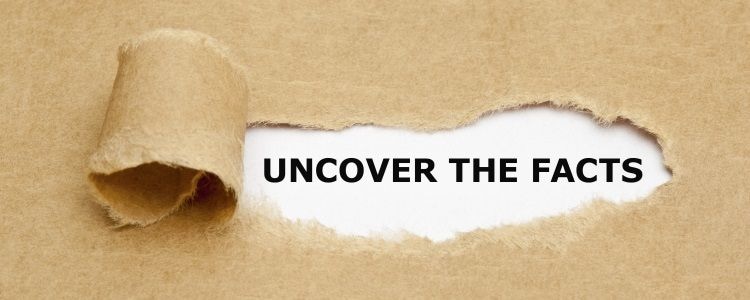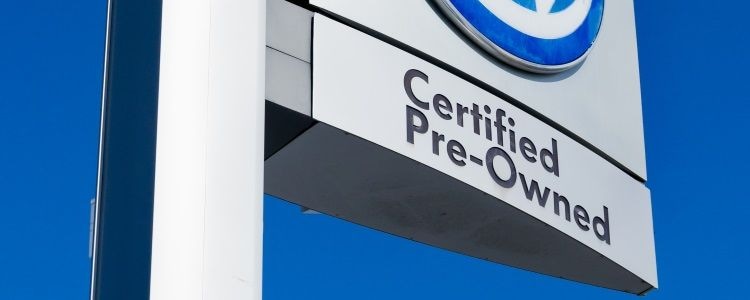Extended warranties aren't the same as an original factory warranty. Warranties typically follow the vehicle, not the driver, however, this may not be the case with a service contract.
Difference Between a Warranty and an Extended Warranty
An extended warranty typically doesn't follow the vehicle the way a factory warranty does, nor does it stick with you after you make a trade.
An extended warranty is different from an original warranty and is generally found on used vehicles. They're a separate purchase that you can make at a dealership, through a third party, or from your insurance provider. Extended warranties are also known as service contracts, and you need to read the fine print carefully before you sign on the dotted line.
A factory warranty is an agreement that the manufacturer is going to cover the costs of certain repairs. The specifics vary. However, original manufacturer warranties typically come as either bumper-to-bumper coverage or powertrain coverage and follow the vehicle for a certain number of miles or amount of time.
Why Opt for an Extended Warranty?
When you're purchasing a used car with an extended warranty, it can give you peace of mind and could save you money in the long run.
Knowing that you may not have to pay out of pocket for things that go mechanically wrong with your vehicle can be worth the extra cost – paid as a separate monthly premium, or rolled into your auto loan contract.
All extended warranties have contract specifics, some allow for you to get unexpected repairs done at a number of locations, while others may require you to use a certain group of repair shops, or return to the dealership service center for repairs.
Some third-party service contracts may even require you to pay for the repairs yourself, and send you a reimbursement later. Other warranties cover things to a certain extent after you pay a deductible for the rest.
Do You Need an Extended Warranty?
If you're considering financing a used car, or have recently purchased one, you may be wondering if an extended warranty is worth it for your vehicle. Before you jump into the fray and purchase a service contract, be sure to ask yourself the following questions:
- Is my car still covered under an original manufacturer warranty? Some vehicles come with warranty coverage built-in. This can either be leftover from the original warranty or perhaps coverage that's included with a certified pre-owned vehicle. If coverage exists on your car, you may not need an extended warranty. That being said, you need to compare your warranty timeline to your timeline for keeping the car.
- What's the specific coverage timeline? Some warranties have coverage that begins when you take ownership of the vehicle, while others state they begin on the date the car was originally sold. For example, if you're getting a 4-year-old vehicle with 90,000 miles on it, and are offered a service contract for seven years or 100,000 miles from the original date of sale, you only have coverage for four years or 10,000 miles, whichever comes first.
- What's covered under this warranty? Not only do you need to ask yourself if the peace of mind is worth it, but you also need to know if a likely breakdown is going to be covered. Be aware of issues other drivers have had with the type of vehicle you're purchasing, and see if they're covered under a powertrain warranty or bumper-to-bumper coverage.
- Do I need to pay for repairs out of pocket? It's important to check the details of your warranty coverage before you accept it, and that means knowing whether or not you're expected to pay for repairs upfront and wait for the service contract provider to reimburse you. In many cases, reimbursement can take longer to get to you than expected, so in this case, you still need to have a rainy-day vehicle repair fund on hand.

- Can I cancel the coverage? Not all warranties can be canceled if you're no longer using the service, but if you can cancel yours, you're likely to see a prorated refund for amounts you've paid. If your extended warranty is rolled into your car loan, you should see a slight decrease in the overall total of your loan amount, though your monthly payment is likely to remain the same.
- Will I keep up the regular maintenance on my vehicle? You might end up eating the cost of repairs anyhow if you're not keeping up with the terms of your extended warranty. In some cases, the contract outlines that you must keep up with regularly scheduled maintenance intervals to ensure proper vehicle operation. If you don't, you run the risk of the warranty becoming void, which means repairs that were deemed preventable may not be covered at all. Keep in mind that service contracts don't cover things that wear out over time, such as brakes and tires, and don't cover regular services like oil changes.
- Do I need this now, or can it wait? You don't have to make the decision to purchase an extended warranty the day you get your car. Since the service contract isn't something required for financing, you can weigh your options and choose the warranty that's right for you, whether you go back to the dealership and ask for one, or find one yourself elsewhere. Just know that warranties vary depending on who you're contracting through, the make, model, age, mileage, and condition of your car.
Ready to Trade-In Your Vehicle?
Now that you know an extended warranty isn't something you have to fret over when trading in your vehicle, you can settle into the knowledge that peace of mind can be purchased for a new-to-you-car at any time, in most cases.
If you're struggling with bad credit and need to find a vehicle that meets your needs, we want to help. At Auto Credit Express, we have built a coast-to-coast network of special finance dealerships that are signed up with subprime lenders that work with borrowers in many situations, including bad credit, no credit, and even bankruptcy. Don't wait any longer to find the dealer you're searching for, simply fill out our auto loan request form, it's fast and free!
















